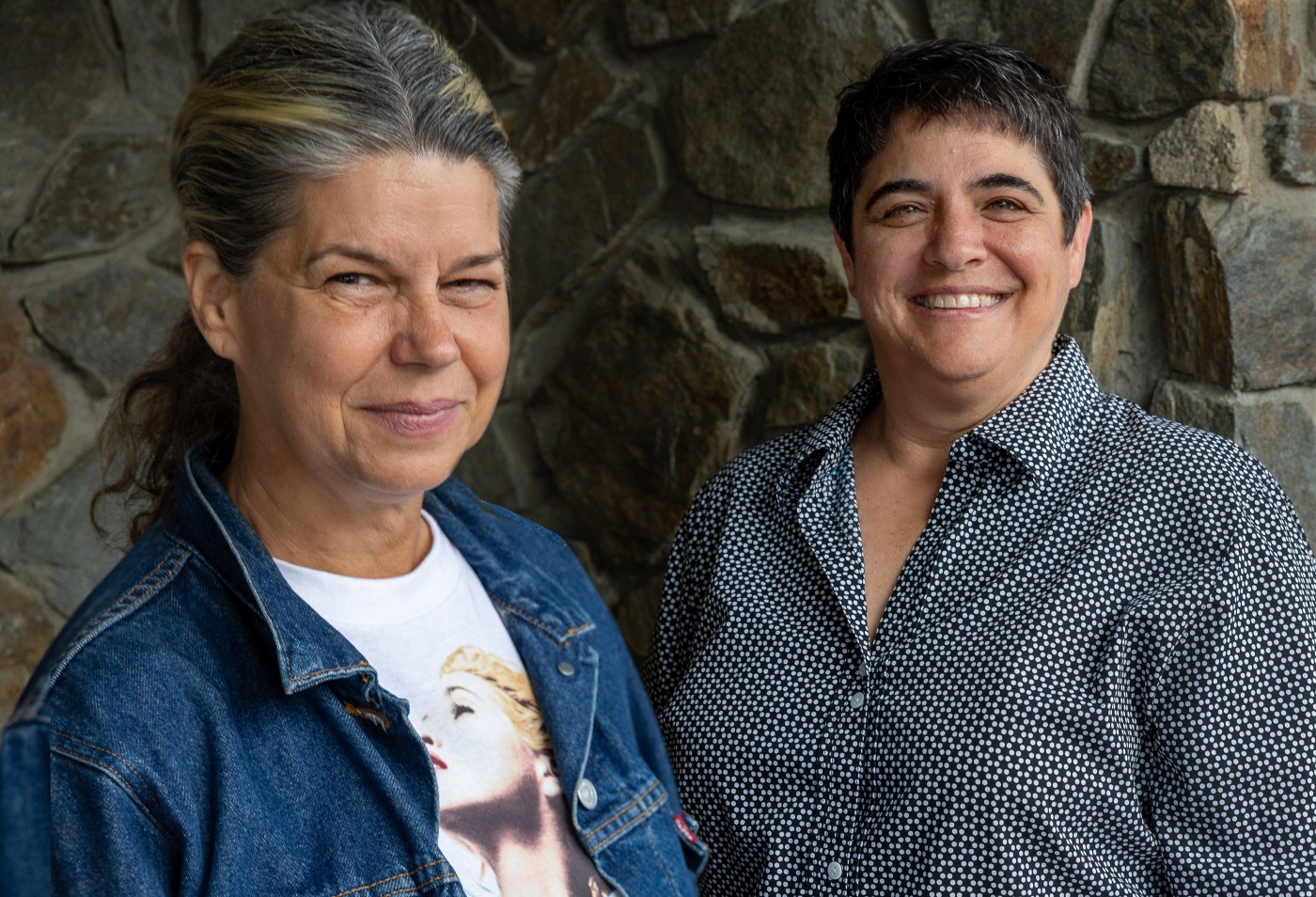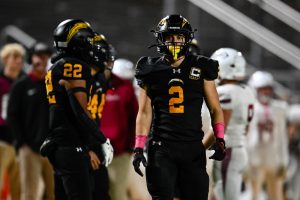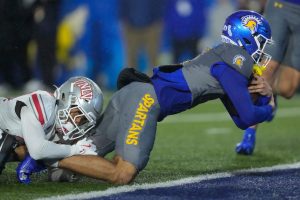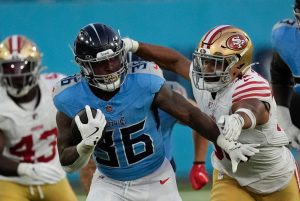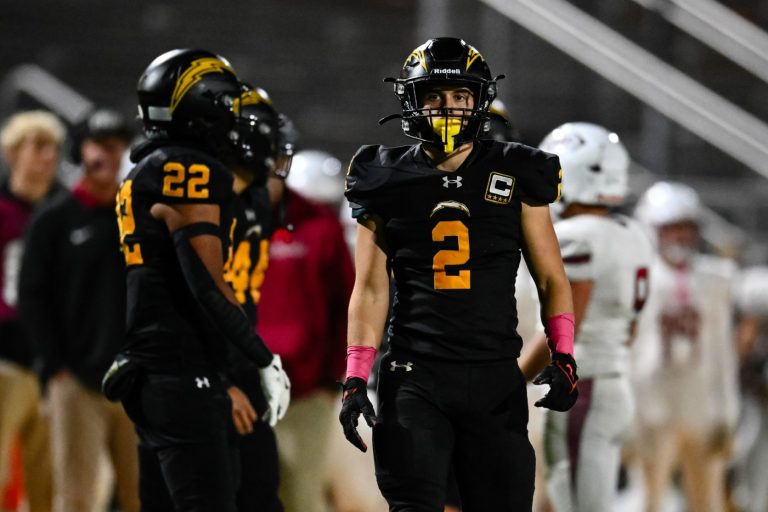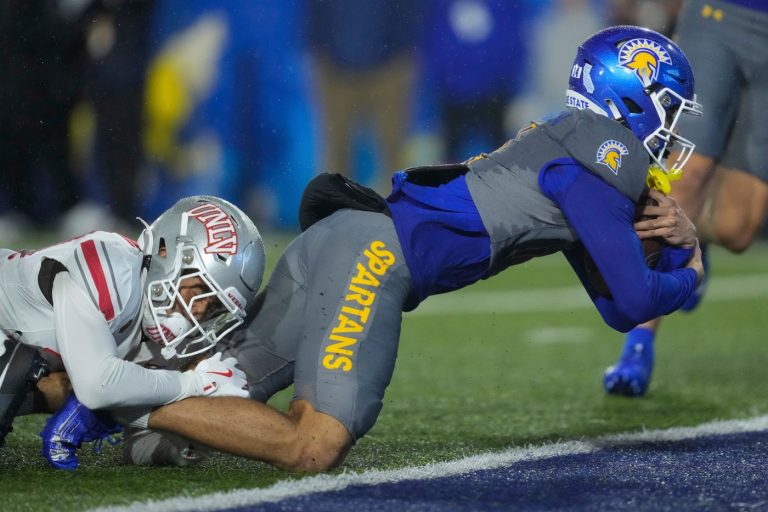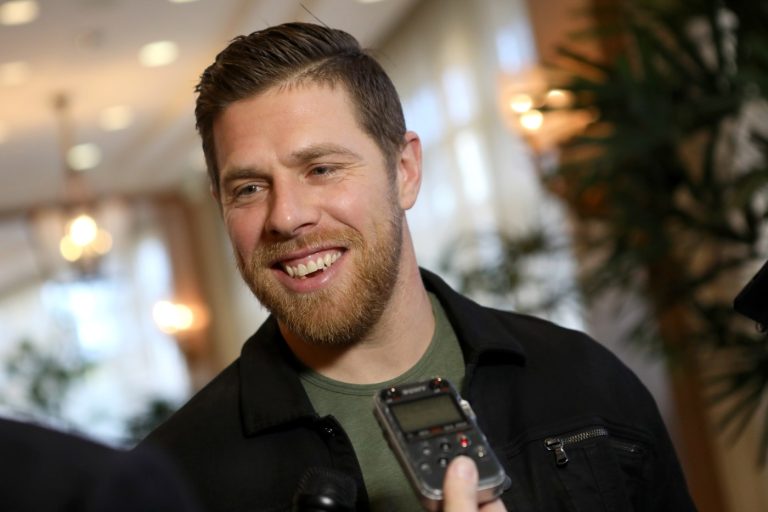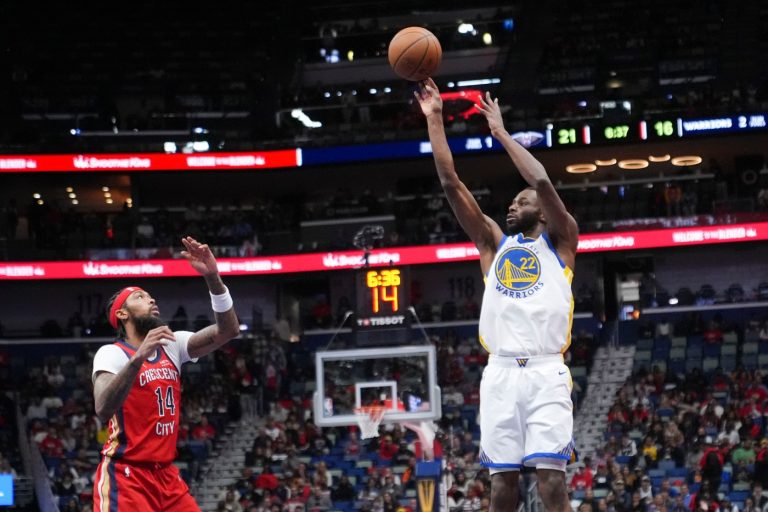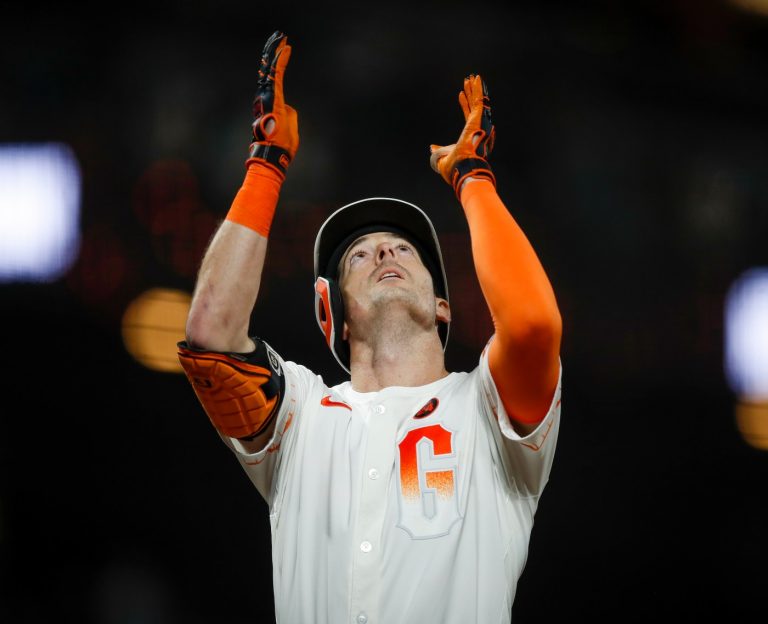When Lateefah Simon showed up on her first day of work at the San Francisco District Attorney’s Office in the early 2000s wearing jeans and sneakers, Kamala Harris sent her home.
“I didn’t hire you to come in and not give your best,” Harris told Simon, whom she recruited to her executive team from a nonprofit helping vulnerable women. Like Black students in the Civil Rights Movement who dressed their best, Harris wanted Simon to show respect for the office. “You go home and you come back tomorrow wearing a suit.”
When Simon appeared in borrowed clothes the next morning, Harris reached behind her desk and retrieved a bag with a new gray suit, just her size.
“Kamala, by far, is the toughest boss that I’ve ever had,” Simon said, “but also the best leader that I’ve ever worked for.”
Bart Board of Supervisors member Lateefah Simon greets an audience during the 37th annual Berkeley Juneteenth Festival in Berkeley, CA on Sunday, June 16, 2024. Simon is a super delegate to this week’s Democratic National Convention, one of four of Kamala Harris’s old colleagues and confidantes from her early days in San Francisco politics who are attending the convention. (Don Feria for Bay Area News Group)
Now, two decades later, Harris is the Democratic nominee for president of the United States and Simon, of Oakland, is the frontrunner to replace U.S. Rep. Barbara Lee in Congress.
Simon is also a superdelegate to this week’s Democratic National Convention, one of four of Harris’ old colleagues and confidants from her early days in San Francisco politics attending the convention. The foursome, who worked on her campaigns and remained friends through Harris’ roles as California Attorney General, U.S. Senator and Vice President, are among her most enthusiastic supporters.
Debbie Mesloh and Rebecca Prozan knocked on doors in polarized Maricopa County to help Biden-Harris win Arizona in 2020. Matthew Rothschild, a longtime Democratic strategist and former deputy city attorney, held the hand of Harris’ 70-year-old mother as she was dying of cancer in 2009.
The stories they tell about Harris confront some of the criticisms opponents lob at her: that she’s a bad boss who can’t keep staff, and that she lacks deep-seated principles. They also help explain how Harris has managed to galvanize the Democratic Party in record time and give Democrats hope that she can defeat Donald Trump, whose November victory seemed nearly certain before President Biden withdrew from the race last month. As they hit the convention hall in Chicago, where Harris will take the stage on Thursday to formally introduce herself to the country, it’s personal.
“I’m speechless, I’m emotional, and I’m comforted by the fact that all of us in San Francisco were able to help her get her start,” said Prozan, who ran Harris’s campaign for San Francisco District Attorney two decades ago. “To lead her to the place where the country and the world are going to be better when she wins.”
If she wins.
National polls show an exceedingly close race, with Harris taking a slight lead in several swing states — a dramatic shift since President Biden’s relinquished his campaign. Trump has lobbed numerous jibes and insults at Harris, calling her “dumb,” a “lunatic” and a San Francisco socialist who has “destroyed San Francisco” and failed to stem the tide of immigrants across the Southern border. Her shifting positions on fracking (she now supports it) and government-run universal health care (she still supports some private health insurance) are also becoming campaign issues.
How well the attacks take hold remains to be seen. But Harris isn’t universally loved in her home state of California, either, where she was born in Oakland the daughter of 1960s civil rights activists. After they divorced, her mother, a breast cancer researcher, raised her two daughters in Berkeley.
Gil Duran, a freelance journalist and political analyst who quit after five months working for Harris during her AG days in 2013, said criticism over Harris’ staff turnover is warranted. Harris “tends to put an unhealthy amount of pressure on staff,” said Duran, who also had worked for then Sen. Dianne Feinstein and then Gov. Jerry Brown. “It’s not always because there’s a big drama or whatever going on.”
The fact that Harris has so far avoided formal news conferences is another red flag about her candidacy, he said. “Extemporaneous speaking is not her strongest suit,” said Duran from his home in San Francisco.
Nonetheless, it was obvious from the start Harris had “star power.” He believes she is a woman of her convictions and supports her candidacy.
“We don’t get a choice of perfect,” Duran said. “To me, even as someone who’s been a Kamala critic and not especially fond of her on a personal level, I believe she’s the best candidate in the race.”
Harris’ four friends in Chicago, however, have no reservations. Rothschild agreed to be a delegate while Biden was still running for reelection. Now, he said, his credential is “like the golden ticket.”
He and Harris met in the 1990s when they both worked as lawyers in the San Francisco city attorney’s office. They became close when Rothschild’s best friend, political consultant Robert Barnes, died in 2002 from complications of AIDs. She was at Rothschild’s side when a priest gave Barnes last rights. When Barnes died, “she held me. You don’t forget that all your life.”
Vice President Kamala Harris, then state Attorney General, is flanked by her former colleagues and friends Debbie Mesloh and Matthew Rothschild at a PRIDE breakfast around 2010. Mesloh and Rothschild are now celebrating Harris’s nomination as the Democratic Party’s presidential candidate in Chicago. (Courtesy of Matthew Rothschild)
He encouraged her to run for District Attorney the next year.
“It sounds trite, but she’s special, and she has charisma,” he said. “She has leadership, she’s principled and fun, and people are drawn to her.”
Her friends have also watched her stand her ground under pressure. One of the first tests came shortly after Harris was elected district attorney in 2003, and a 21-year-old gang member shot and killed plainclothes officer Isaac Espinosa, married with a 3-year-old daughter.
Harris had campaigned against the death penalty and within three days of the shooting, announced that she wouldn’t seek it in that case. She attended the officer’s funeral, where hundreds of police officers gave a standing ovation to Sen. Dianne Feinstein who addressed the congregation saying the killing was “the special circumstance called for by the death penalty law.”
“She wasn’t going to move because she was a principled person,” Rotchschild said. “Whether or not you support the punishment, people in the Bay Area that were reading about this learned that she had a backbone.”
Debbie Mesloh, her former communications director, said Harris was often the only woman or woman of color in meetings and at conferences, where men often tried to dismiss or ignore her.
At a California District Attorneys Association convention, when Harris discussed the need to reduce recidivism, “people looked at her like she had four heads, like DAs are there to fight crime,” Mesloh said.
“They would try to talk around her or talk to our chief deputy, who was a white male, and try to dismiss what she was saying,” Mesloh said. “I saw it countless times.”
Just as Harris cut off Vice President Mike Pence during their 2020 debate, saying “I’m speaking,” she instead told the district attorneys, “excuse me, I’m the DA.”
“As a woman learning from her,” Mesloh said, “you don’t let anyone push you around.”
Simon, who wishes she still had the suit Harris gave her, remembers when Harris showed her a wall of photos of district attorneys who came before her — all white men.
“We can’t change the system overnight,” Harris told her, “but we can peck away at it.”
On Thursday night when Harris takes center stage, her four California friends will be there to cheer her on — and will do what it takes to help her win in November.
“We’ve all agreed,” Prozan said, “we’ll go anywhere — wherever the campaign needs us.”
